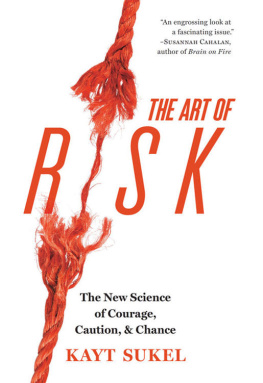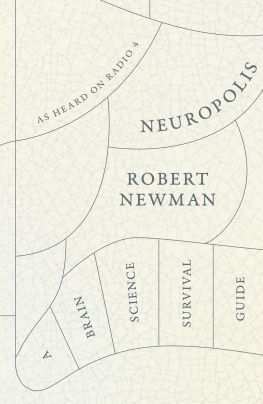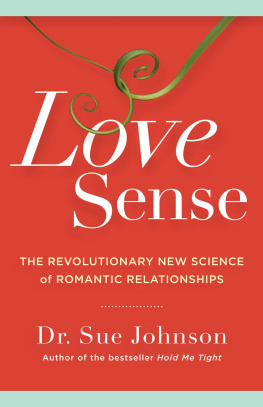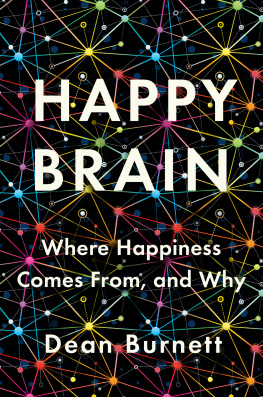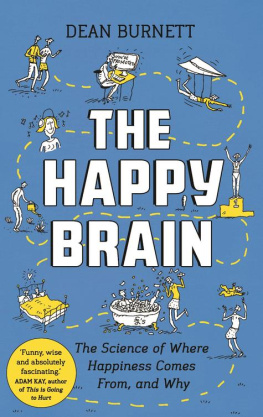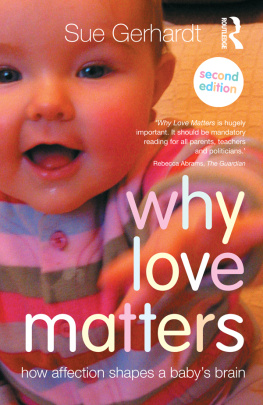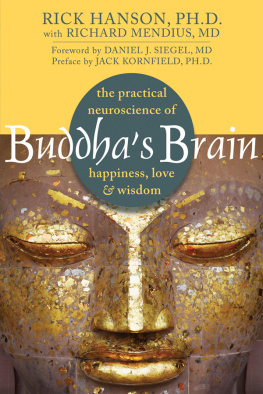To Chet, my mother, and all those cheeseburgers


Free Press
A Division of Simon & Schuster, Inc.
1230 Avenue of the Americas
New York, NY 10020
www.SimonandSchuster.com
Copyright 2012 by Kayt Sukel
All rights reserved, including the right to reproduce this book or portions thereof in any form whatsoever. For information address Free Press Subsidiary Rights Department, 1230 Avenue of the Americas, New York, NY 10020.
First Simon & Schuster trade paperback edition March 2013
Previously published as Dirty Minds: How Our Brains Influence Love, Sex, and Relationships
FREE PRESS and colophon are trademarks of Simon & Schuster, Inc.
The Simon & Schuster Speakers Bureau can bring authors to your live event. For more information or to book an event contact the Simon & Schuster SpeakersBureau at 1-866-248-3049 or visit our website at www.simonspeakers.com.
Designed by Julie Schroeder
Library of Congress Cataloging-in-Publication Data
Sukel, Kayt.
[Dirty minds]
This is your brain on sex : the science behind the search for love / Kayt Sukel.
p. cm.
Previously published as Dirty Minds: How Our Brains Influence Love, Sex, and Relationships.
1. LovePsychological aspects. 2. LovePhysiological aspects.
3. Sex (Psychology) 4. Sex (Biology) I. Title.
BF575.L8S9125 2013
155.3'1dc23
2012049014
ISBN 978-1-4516-1155-7 (print)
ISBN 978-1-4516-1156-4 (pbk)
ISBN 978-1-4516-1158-8 (eBook)
Contents

A Note about Illustrations

The brain is an organ with an intricate biological architecture. When discussing the results of neuroimaging studies, I have used illustrations to help point out the approximate location of key areas in the brain. However, due to the brains complexity, it can be difficult to differentiate all the areas of interest in a single study from the same visual perspective. In some cases, only the most significant regions are highlighted, or two images are used. In addition, laterality (whether the activation occurred on the left hemisphere, the right hemisphere, or both hemispheres of the brain) is often ignored for simplicitys sake. For those interested in the areas not illustrated or in more exact positioning, I recommend visiting the Whole Brain Atlas, a detailed online neuroimaging primer created by Keith A. Johnson, MD, and J. Alex Becker, PhD, www.med.harvard.edu/AANLIB/home.html
What is this thing called love?
COLE PORTER
Introduction

We all know what love is. Or at least we think we do. Love is a rock, a drug, reciprocal torture, and an exploding cigar. Love is all you needyet its a cold and a broken Hallelujah. It is a many-splendored thing, a battlefield, and a river. Love stinks. Its divine. It is never having to say youre sorry. Or perhaps having to say so much more than you ever thought you would. Love is a bitch. Its like a disease. Its a trap. Ted Nugent, in one of his more romantic moments, even likened love to a tire iron. There are plenty of metaphors out there, and many ring true, but there is still no great, all-encompassing definition. Perhaps that is why someone thought it necessary to create a bumper sticker that simply says, Love is... and avoid the specifics altogether. Try it yourself some timeexplain the concept of love. Surely something comes to mind. Now make it applicable to everyone in every potential love-related situation. It isnt easy, is it?
Its like what the Supreme Court said about pornographyI know love when I see it! a friend of mine suggested. Or feel it, as it were.
He definitely had something there. I think most of us innately know what love is. We can recognize it and feel it. We just cannot translate it into words. Love is simply too abstract, too elusive, and too bizarre to explain. The same is true of loves partners in crime: sexual attraction, lust, monogamy, and hate. Anything as complicated as love is outside the realm of simple descriptionand best left to philosophers, novelists, and boy bands.
The lack of a clear-cut definition has not stopped folks from offering advice on how to attract, nurture, and prolong love. Moms, friends, even total strangers are happy to tell you all about the right ways to handle your love life. They are usually tips bearing the promise of relationship rescue through better understanding, better communication, and better sex. Never mind that far too much of this guidance falls into the Take my advice, Im obviously not using it category. Anecdotal evidence of the communication strategies (or crazy bedroom antics) that fixed Aunt Deirdre and Uncle Mikes marriage just do not cut it anymore. In this day and age we want our adviceeven for something as intangible as lovebacked by cold, hard science. Instead of Moms shoulder, Freuds couch, or the pastors office, we now look for answers in genetic profiles and brain scanners.
I once saw a television commercial for an acne drug. The tagline was Blame biology. Forget diet, proper hygiene, or a good bar of soap (my own dermatologists go-to solution): this commercial insinuated that acne was solely a biological issue and that perfect skin was only a doctors prescription away. Advances in research mean that previously inexplicable phenomena like depression, obesity, and a whole host of other genetic disorders can now be examined within the realm of biology and are mostly treatable by this or that new pill. These pharmacological treatments are a boon for those of us who feel we are working too hard (and without much effect) to maintain some semblance of balance in our body and mind. We are made to believe that these sorts of problems are not our fault, that the blame falls squarely on that blasted biology. So biology should give us a way to fix it.
Intuitively it feels as though we should view love through the same sort of lens. Though some might argue the point, I consider myself a relatively intelligent person. Despite several long-term relationships (and more than a few short-term ones), a failed marriage, and a child, as I get older I realize that I do not know much about love. Some days Im fairly certain I know absolutely nothing about it. And I do not seem to be alone in this. Start a conversation with someone falling in or out of love and nine times out of ten you will eventually hear the words I should know better.
Most of us, if were being honest, will admit we are a tad clueless when it comes to love, no matter how experienced we think we are. With that backdrop in place, blaming biology doesnt seem like such a bad option. Certainly we would not keep making the same silly mistakes if biology werent urging us on.
Technology and science have now advanced to the point that disciplines like biology, genetics, epidemiology, evolutionary science, psychology, philosophy, computer science, and medicine have converged into the catchall field of neuroscience. More and more, neuroscientists are demonstrating that the brain is behavior the two simply cannot be teased apart. Our brains are the seat of the biology that is directing every move we make. (I realize there are many who believe there is some kind of spiritual hand guiding our love lives, perhaps even influencing our brains. Given that it is a controversial argument that science can neither prove nor refute, I consider it outside the scope of these pages. But I will discuss some of the neuroscientific studies examining religious devotion and the brain in chapter 16.)
Next page

